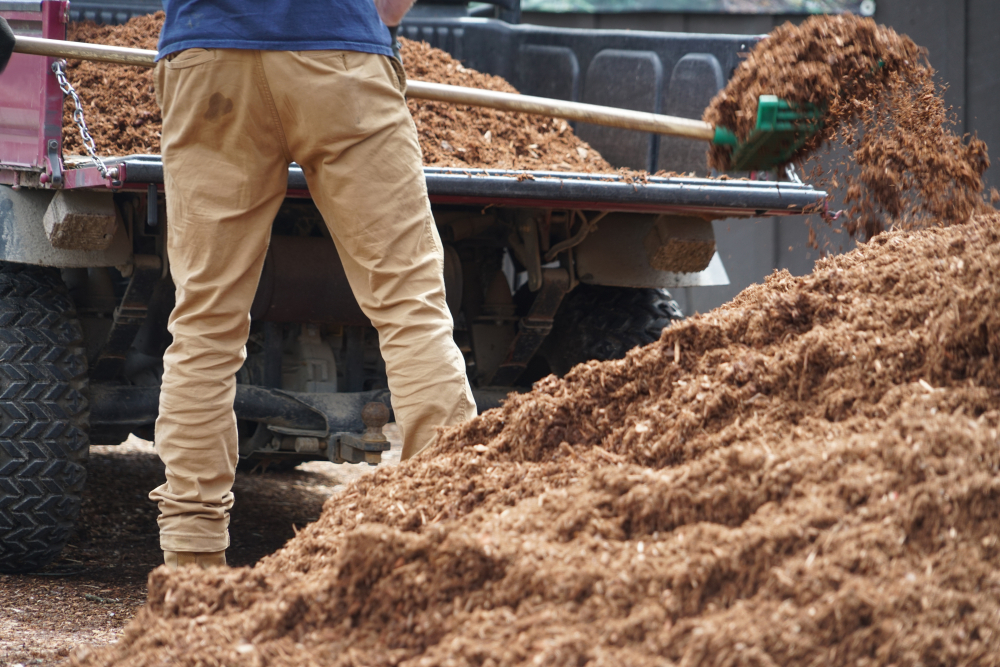Keeping your property tidy involves more than just regular cleaning and gardening. Effective rubbish removal is crucial for maintaining a clean and healthy environment. Knowing how to manage waste properly can make a big difference in keeping your outdoor space neat and organised. With a few expert tips, you can handle your rubbish removal efficiently and sustainably.
Read on for detailed tips and guidelines on managing your rubbish effectively and maintaining a tidy property.
Sorting Your Rubbish Effectively
Sorting your rubbish effectively is vital for efficient waste management. Start by setting up different bins for various types of waste. Have separate containers for recyclables, compostable materials, general waste, and hazardous waste. This makes it easier to manage each type and ensures that recyclables are not contaminated with other rubbish.
Take the time to understand what items can be recycled in your area. Commonly recyclable materials include paper, cardboard, glass, certain plastics, and metals. Rinse out any containers before placing them in the recycling bin to remove food residue. This prevents contamination and ensures that the materials can be properly processed.
For organic waste like food scraps and garden clippings, set up a compost bin. Keep a small container in the kitchen for daily scraps, and empty it into a larger outdoor bin regularly. Ensure that you know which items should not go into the compost, such as meat, dairy, and oily foods, as these can attract pests and cause odours.
Composting and Recycling Tips
Composting and recycling are excellent ways to reduce waste and benefit the environment. Start by composting your kitchen and garden waste. Items like fruit and vegetable scraps, coffee grounds, eggshells, leaves, and grass clippings can all be composted. Layer green waste (nitrogen-rich) and brown waste (carbon-rich) to balance the compost, and turn the pile regularly to aerate it and speed up decomposition.
When setting up a compost bin, choose a spot with good drainage and some shade. This keeps the compost from getting too wet or too hot. Add water if the pile becomes too dry, and mix in dry leaves or straw if it’s too wet. Within a few months, you’ll have rich compost to use in your garden beds, boosting plant growth and soil health.
Recycling goes beyond just placing items in the right bin. Make sure to clean and flatten cardboard boxes, crush cans, and remove labels from glass jars. Some items that many people don’t think to recycle include aluminium foil (cleaned), old newspapers, and certain plastics. Check with your local recycling program for specifics, as rules can vary.
For e-waste like old phones, computers, and batteries, find dedicated recycling centres. Many electronic stores also offer take-back programs for these items. Recycling e-waste is crucial as it prevents harmful substances from leaking into the environment.
Handling Hazardous Waste Safely
Handling hazardous waste safely is crucial to protecting both the environment and your health. Hazardous waste includes items like batteries, paints, chemicals, and electronic devices. These items cannot be disposed of with regular rubbish due to their potential to harm the environment and human health.
First, identify the hazardous waste in your home. Items such as household cleaners, pesticides, motor oils, and compact fluorescent lightbulbs all fall under this category. Store these items in a cool, dry place away from children and pets until you are ready to dispose of them properly.
Check with your local council for information on hazardous waste disposal programs. Many communities offer special drop-off days or facilities where you can bring these items. Some retailers also have take-back programs for items like batteries and electronics.
When handling and transporting hazardous waste, wear gloves and use containers that are leak-proof and labelled clearly. Never mix different types of hazardous materials, as this can cause dangerous chemical reactions. Follow all local guidelines and regulations to ensure the safe and legal disposal of hazardous waste.
Scheduling Regular Rubbish Removal Sessions
Scheduling regular rubbish removal sessions is essential for keeping your property tidy and clutter-free. A routine ensures that waste doesn’t pile up, making your outdoor space more pleasant and manageable.
Start by assessing how much rubbish your household generates in a typical week. This will help you determine how often you need to schedule rubbish removal. Weekly or bi-weekly sessions may be ideal for most households.
Create a calendar to keep track of rubbish removal days. Set reminders so you don’t forget to put out the bins or take items to a drop-off location. Having a consistent schedule ensures that rubbish is dealt with promptly and doesn’t become an eyesore.
Additionally, seasonal clean-ups can be very effective. During these sessions, tackle larger tasks like clearing out the garage, pruning trees, and removing old or broken items that have accumulated over time. Seasonal clean-ups help you stay on top of bigger projects that might not fit into your regular rubbish removal routine.
Encourage everyone in the household to participate. Assign specific tasks to each family member to ensure the work is evenly distributed. When everyone pitches in, the process is quicker and more efficient, making rubbish removal a team effort.
Conclusion
Effective rubbish removal is key to maintaining a clean and healthy property. From sorting your rubbish effectively and composting to handling hazardous waste safely and scheduling regular removal sessions, these tips will help you manage waste efficiently. By following these strategies, you can ensure that your property remains neat and welcoming all year round.
If you need assistance with home rubbish removal or other property maintenance tasks, contact Totally Tidy. We’re here to help you keep your property looking its best. Reach out to us today to learn more about our services and how we can help you maintain a tidy and beautiful outdoor space!


